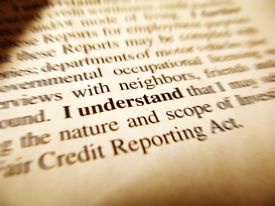 Have you ever read your lease? Of course you read the parts about paying rent, the term and your option to renew. But you probably sped by the indemnification and insurance provisions. You ran it all by your insurance agent and she “took care of it.” That’s the last you remember. I heartily suggest that you dust off that lease and find out what it really says about risks and insurance. Commercial leases are the worst, i.e. the poorest written, document I review. They are seemingly cut and pasted together by the landlord or its attorney with no real understanding of allocating risk. “Risk” is the one area of your lease that shouldn’t be adversarial with your landlord.
Have you ever read your lease? Of course you read the parts about paying rent, the term and your option to renew. But you probably sped by the indemnification and insurance provisions. You ran it all by your insurance agent and she “took care of it.” That’s the last you remember. I heartily suggest that you dust off that lease and find out what it really says about risks and insurance. Commercial leases are the worst, i.e. the poorest written, document I review. They are seemingly cut and pasted together by the landlord or its attorney with no real understanding of allocating risk. “Risk” is the one area of your lease that shouldn’t be adversarial with your landlord.
Remember, you, the tenant, pay for ALL of the insurance, both yours AND the landlord’s; since your rent includes the landlord’s premiums. So, it’s a question of making sure that all risks are covered and finding the most economical way to allocate your premium dollars. Some risks are most efficiently covered by the landlord’s insurance and some by yours. It may even be wise to have the same insurance carrier. Talk to someone who understands risk allocation and commercial insurance coverages (hint: this may not be the agent who insures your car).
Be certain that you have the coverage your lease requires. Sounds simple doesn’t it? But all too often you (or your agent) assume that the boilerplate “renters” insurance will do and no one bothers to read the insurance requirements in your lease. The stakes are high, since the wrong coverage breaches the lease, and may leave you personally liable under your personal guarantee.
Be certain that the lease limits your liability to your insurance coverage. It is critical that your lease include a “waiver of subrogation” by BOTH you and the landlord, or that it includes some other provision for waiving certain claims.
What’s scary is that leases often have risk shifting measures buried in long lost paragraphs that you will never recognize (if you can stay awake long enough to read them). I am constantly amazed to find that landlords don’t know about these clauses or don’t understand them. Once explained they readily agree to change or remove them. Many leases have been copied and re-copied for so many years that the insurance/risk clauses are badly outdated and landlords have no idea why.
Most importantly, did you sign a personal guaranty of your lease? If you have one of those boilerplate guaranties, then you may have personally assumed the risk for everything that your insurance doesn’t cover. If your employee burns the building down, guess who pays the bill? Losing your business assets is one thing, but putting your personal assets on the line is another matter. Your guaranty should limit your personal risk only to the deductible on your insurance. If someone told you that all guarantees are the same, you accepted very bad advice. Leases have become complex documents, so it’s important that you have an experienced commercial attorney review your lease. (Hint: this is not the attorney who advertises for “personal injury.”)
